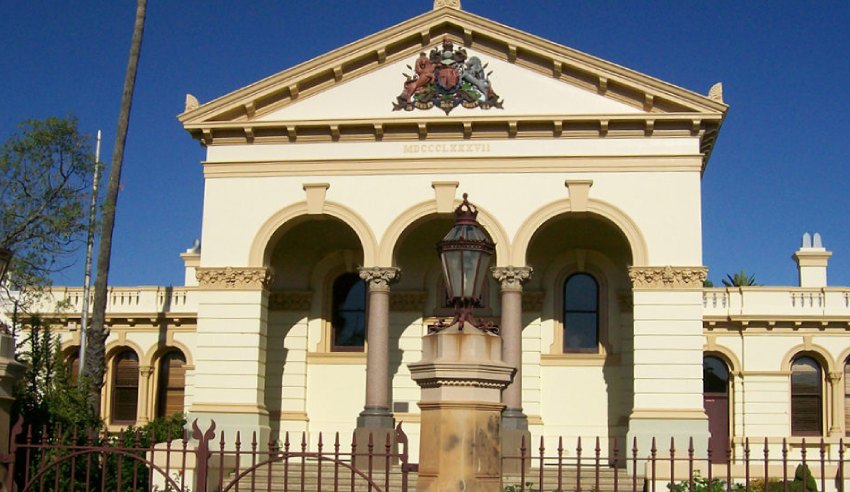A “solutions-based” court can help offenders make permanent positive long-term changes, according to this Drug Court judge.

The Honourable Roger Dive, who led the state’s Specialist Drug Court for more than 17 years, spoke on the expansion of the Drug Court to Dubbo at the Law Society of NSW’s 2021 Rural Issues Conference on Friday (29 October).
Earlier this year, the NSW government made the decision to expand the specialist Drug Court to Dubbo in western NSW and provide additional drug and alcohol rehabilitation services for the region. The long-awaited move was an acknowledgment that the use of prohibited drugs is a major health issue as well as a criminal justice problem.
Expected to open next year, the Dubbo Drug Court will be funded to manage up to 80 participants at any one time and is expected to sit for one day a week initially and then work up to two days moving forward.
“I’m expecting that Dubbo will be able to handle everyone who should get the opportunity to do a drug court programme,” his honour said.
His honour described the drug court as a “solutions-based court” and helps offenders make long-term changes through a specialised program.
“The Drug Court currently sits in three locations. So, we sit at Parramatta, a major centre looking after the west and south-west of Sydney. There’s the Toronto Drug Court that looks after Newcastle and the Lakes area and as far out as Raymond Terrace and Cessnock. And then a small programme in the city as well just sort of Redfern Waterloo and the Surry Hills area,” he said.
“There’s about 270 people on the program, 180 of those are out of Parramatta, and we see about 40 of our participants every day when they come to court for what we call reporting. It’s a team effort. So, the judge works as a team with the DDP, Legal Aid, Police, Community Corrections, Justice health, the Area Health Service, and our non-government organisations that help us.”
Participants in the program meet with the judge and the rest of the team each week to discuss counselling, job interviews, drug test results, and other expectations set out in their individual program.
“I think almost universally they start to enjoy coming to court because there’s actually some sensible people who are capable, who are interested in them and who want to help them make some change,” his honour added.
“The Drug Court can deal with strictly indictable matters which can only be heard by a judge – purely summary matters, such as traffic offences and goods in custody, which can only go before a magistrate. And we can also deal with breached conditional orders that might have been made across time.
“We can drag all of those cases together and deal with them in one occasion with one initial sentence. And then that initial sentence is suspended on them coming onto a highly supervised treatment and case management plan.”
The plan may involve attending a rehab facility or being on medication and requires the participant to do three supervised urine drug tests a week, have weekly counselling and group programs, home visits, a curfew and random checks. The minimum time period an offender has to participate in the program is 12 months, and his honour said that the average time for an offender to “graduate” from the program is 15 months.
“With an enormous amount of effort by the participant, you can turn a three- or four-year sentence into a community corrections order with a long period of sustained recovery,” he said.
“The legislation also has some really sensible objectives written into the legislation to reduce the drug dependence of the participants, to promote their reintegration into the community and to reduce their need to resort to crime to fund their addiction.”
After participants pass a range of eligibility requirements, they go through the three phases of the program, during which counselling sessions and home visits decrease the longer they’re in the program.
“They’re asking for more controls to help them stop, and the whole heart of drug court is helping someone with external controls to build some internal controls along the way. So, at the beginning, they’re asking us, and we are enforcing a lot of external controls to help them stop using it and start doing something positive in life,” his honour added.
“But then you are working on building on across those months, that that’s not the person they are anymore, that they realise that they can stop, and they don’t ever want to go back.”
His honour added that participants often re-visit the court after graduating – and said that the point of the drug court was to give those struggling a “break” in order for them to succeed.
“People come back years later to see us and stay in touch and let us know how they’re going. And they’re very ordinary. You’d know some of these clients, you know they’re in trouble, and they go to jail for their eighth drive while disqualified and a bit of shoplifting,” he said.
“And yet they are such ordinary people but probably maybe never had much of a break in life, and with a bit of help, they’ve done really well.”

Lauren is the commercial content writer within Momentum Media’s professional services suite, including Lawyers Weekly, Accountants Daily and HR Leader, focusing primarily on commercial and client content, features and ebooks. Prior to joining Lawyers Weekly, she worked as a trade journalist for media and travel industry publications. Born in England, Lauren enjoys trying new bars and restaurants, attending music festivals and travelling.